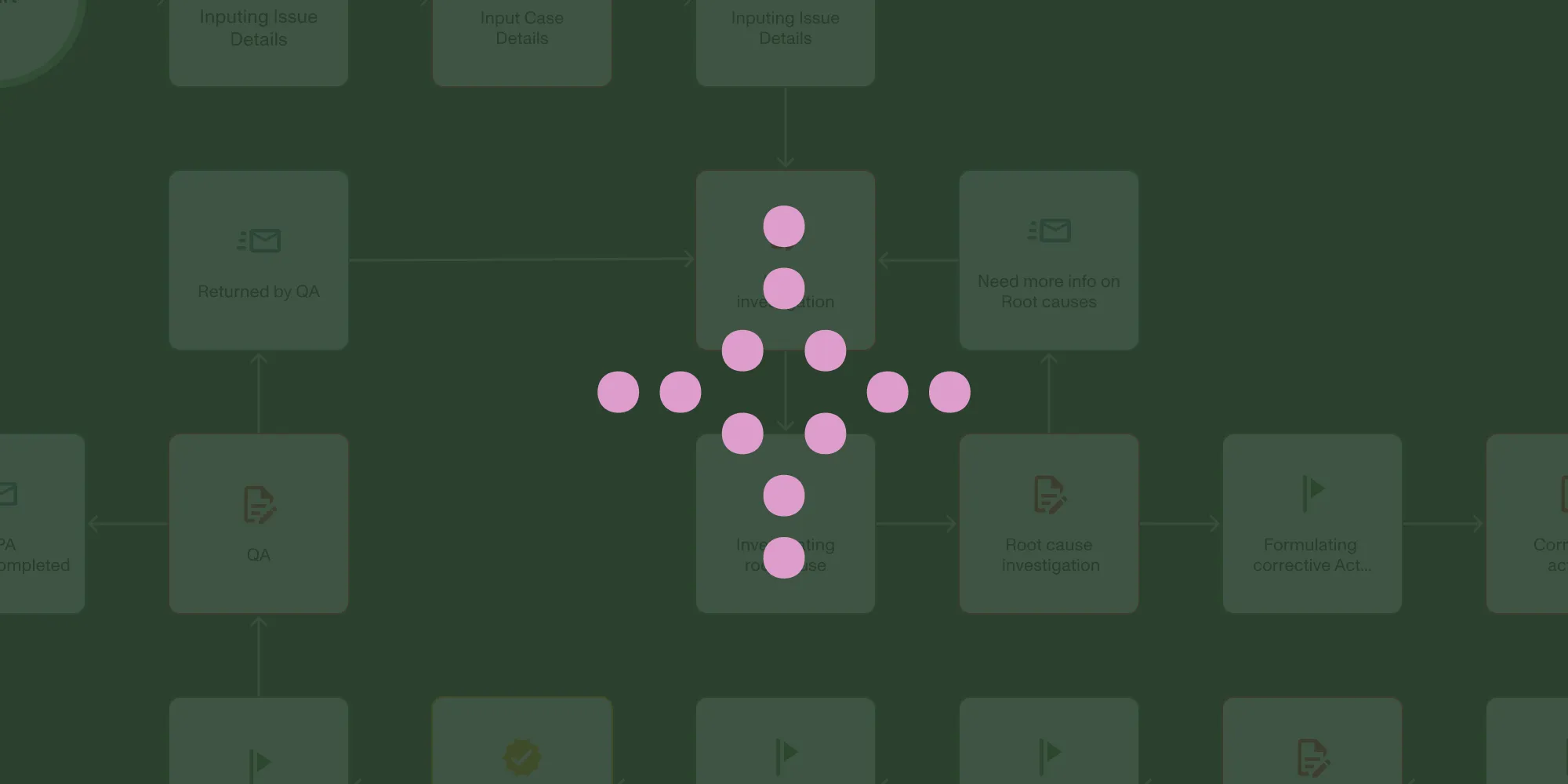How To Have More Patience at Work
Table of contents

We expect things to happen fast—and that's made most people extremely impatient. We've got some tips on regaining your patience in the workplace and in general.
Technology has completely shifted the way we move through life—and, more specifically, the _pace _at which we move through life. Instead of sending a letter and waiting days (or weeks) for a response, you can send an email and get an answer almost immediately. Instead of waiting days for an order to arrive, you can choose the same-day delivery option and get your item in a matter of hours. Instead of waiting until the morning to ask a coworker a question, you can send them a text or a Slack message after hours and get the response you need.
The point is, thanks to technology, we expect things to happen fast—and that's made most people extremely impatient. One survey, reported in Study Times(opens in a new tab), found that patience thresholds are dropping dramatically—including at work. According to the study, respondents become frustrated after just 16 seconds of waiting for a web page to load—and 38 percent lost patience while trying to take notes during a meeting.
But being impatient at work can lead to a host of adverse outcomes, from challenging relationships with coworkers to an increased risk of mistakes. For example, no one wants to work with a person who snaps at them if they don't respond to an email fast enough or if you're rushing to get a report out in time—and aren't patient enough to review and revise—chances are, you're going to have at least a mistake or two.
So, the question is, how can you practice more patience in the workplace—and improve your relationships, performance, and overall experience at work in the process?
Why is patience at work important?
One survey, reported in Study Times(opens in a new tab), found that patience thresholds are dropping dramatically—including at work.
First things first—before we jump into how to be more patient at work, let's quickly cover why practicing more patience is important, to begin with.
There are several reasons you should make cultivating patience at work a priority, including:
- Patience makes you happier... If you want to be a happier person, becoming a more patient person could be the way to get there. One 2012 study, published in the Journal of Positive Psychology(opens in a new tab), found that patience was tied to increased well-being, happiness, and life satisfaction.
- ...and more productive. Being more patient doesn't just make you happier—it can also make you more productive. That same study also found that patience was tied to a higher likelihood to pursue and achieve goals—particularly in the face of obstacles or challenges.
- Patience can help improve your relationships at work. As mentioned, when you're feeling impatient, you may be more likely to snap at a coworker, make unrealistic demands, or act rude, irritable, or arrogant—which can lead to challenging relationships at work. When you're practicing patience, you're more likely to bring kindness, compassion, understanding, and empathy to your interactions with coworkers—which will ultimately make for better relationships.
Clearly, practicing patience at work is a must. But what strategies can you use to actually become more patient in the workplace?
Identify your impatience triggers—and develop a plan to deal with them
Impatience isn't a universal experience; everyone has different experiences that trigger their impatience.
So, if you want to be more patient at work, the first thing you need to do? Identify your personal impatience triggers—and develop a plan for dealing with them.
For example, let's say you find yourself feeling impatient when a meeting runs past its scheduled end time. Instead of staring at the clock, feeling more frustrated each minute, the meeting runs late, you can develop a strategy to keep your impatience at bay. For example, by always scheduling meetings 15 minutes past their end time on your calendar, so you don't feel rushed to get to your next appointment.
Or maybe you get frustrated when you feel like a coworker "takes too long" to respond to an email or Slack message. Instead of expecting an instant response—and feeling frustrated and impatient when you don't receive it—you might talk to your coworker to agree upon a response time that's reasonable and works for you both.
The point is, to be more patient at work, you need to know what triggers your impatience—and then develop a clear plan to deal with those triggers when they arise.
Commit to one task at a time
Most people think of impatience concerning others. But suppose you've ever found yourself drafting an email, listening in on a Zoom conference call, and scrolling through your social media feed. In that case, you know that impatience can also manifest in your own work—in the form of multitasking.
When you're multitasking, you're so impatient to get things done that you try to do everything at once. But that impatient multitasking can actually cause performance and productivity to take a nosedive; research from Stanford University(opens in a new tab) found that people who regularly interact with multiple streams of electronic information (like emailing and talking on the phone at the same time) struggle with a variety of cognitive processes, including memory, attention, and effectively switching from one task to another—while research highlighted by the American Psychological Association(opens in a new tab) estimates that multitasking can cause productivity to drop by up to 40 percent.
So, if you want to be more patient at work, start with being more patient with yourself—and giving yourself the time and space to complete one task at a time. Block out time on your calendar to work on specific tasks—and then only work on your assigned tasks during each time block. That means no checking email when you're working on a presentation, no social media when you're checking emails, and no work when you're on a scheduled break.
If you're used to multitasking, committing to one task at a time will probably make you feel more impatient—at least at first. But when you bring focused attention to every task on your to-do list, you'll not only get more done, but you'll likely get it done at a higher quality and in less time—which will make it a lot easier to be patient with yourself and your work.
Incorporate more activities into your work (and life!) that require patience
Everyone has heard the saying, "practice makes perfect." Well, the expression "practice makes patient" is also true—so, if you want to be more patient at work?
You need to start practicing.
Incorporating more activities that require patience can actually help you become a more patient person—which, in turn, will help you bring more patience into work. And the good news? With some effort, you can increase tolerance pretty quickly; the Journal of Positive Psychology study found that participants who participated in a "patience training" course (which included activities like meditation and identifying emotional triggers) were able to significantly increase their patience in just two weeks.
Look for activities and tasks in your work and home life that require patience—and then incorporate those activities and tasks into your daily routine. For example, you might commit to 10 minutes of meditation on your lunch break. Or perhaps when you send an email, you might commit to not checking your inbox for a response for at least 30 minutes. Or, instead of watching TV after work, you might try a leisure activity that requires more patience—like a puzzle or knitting.
The point is, it doesn't matter how impatient you are now. You can become more patient at work (and in general); all it takes is a little practice.
Become more patient—and more successful—at work
In today's fast-paced world, it can be hard to slow down. But becoming more patient at work can make you happier and more productive—so use these strategies to practice patience at work (and become more successful in the process).








